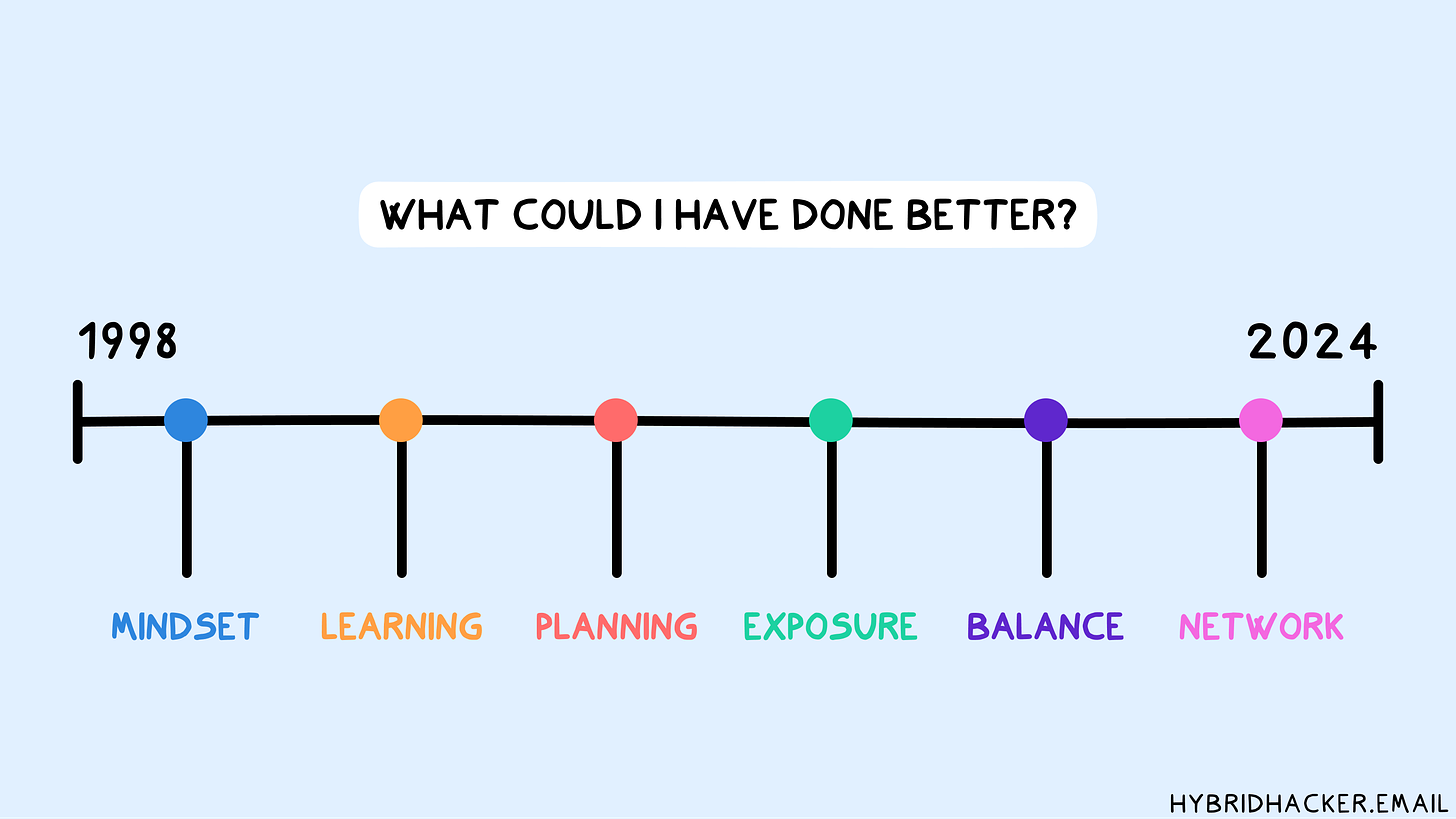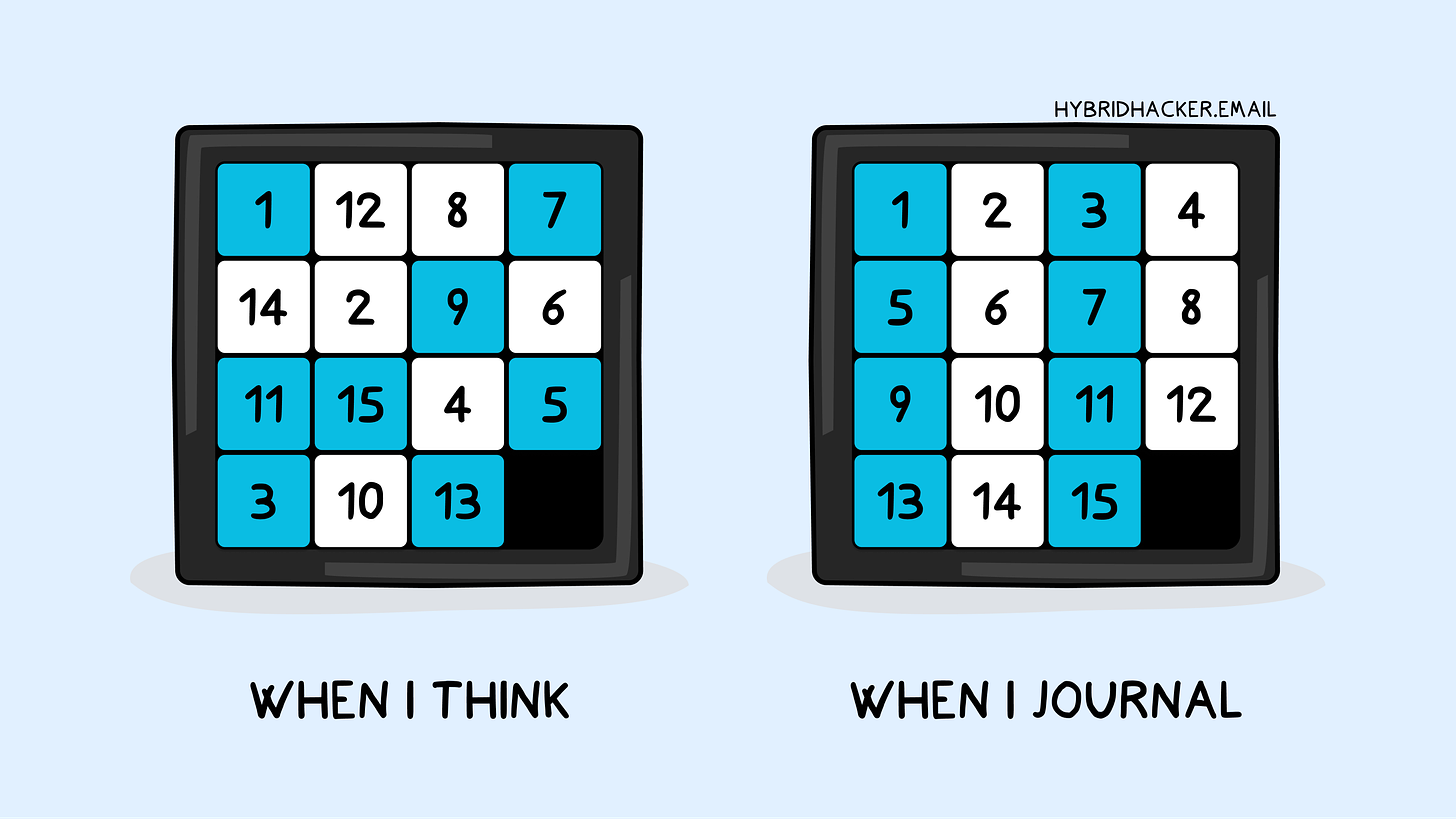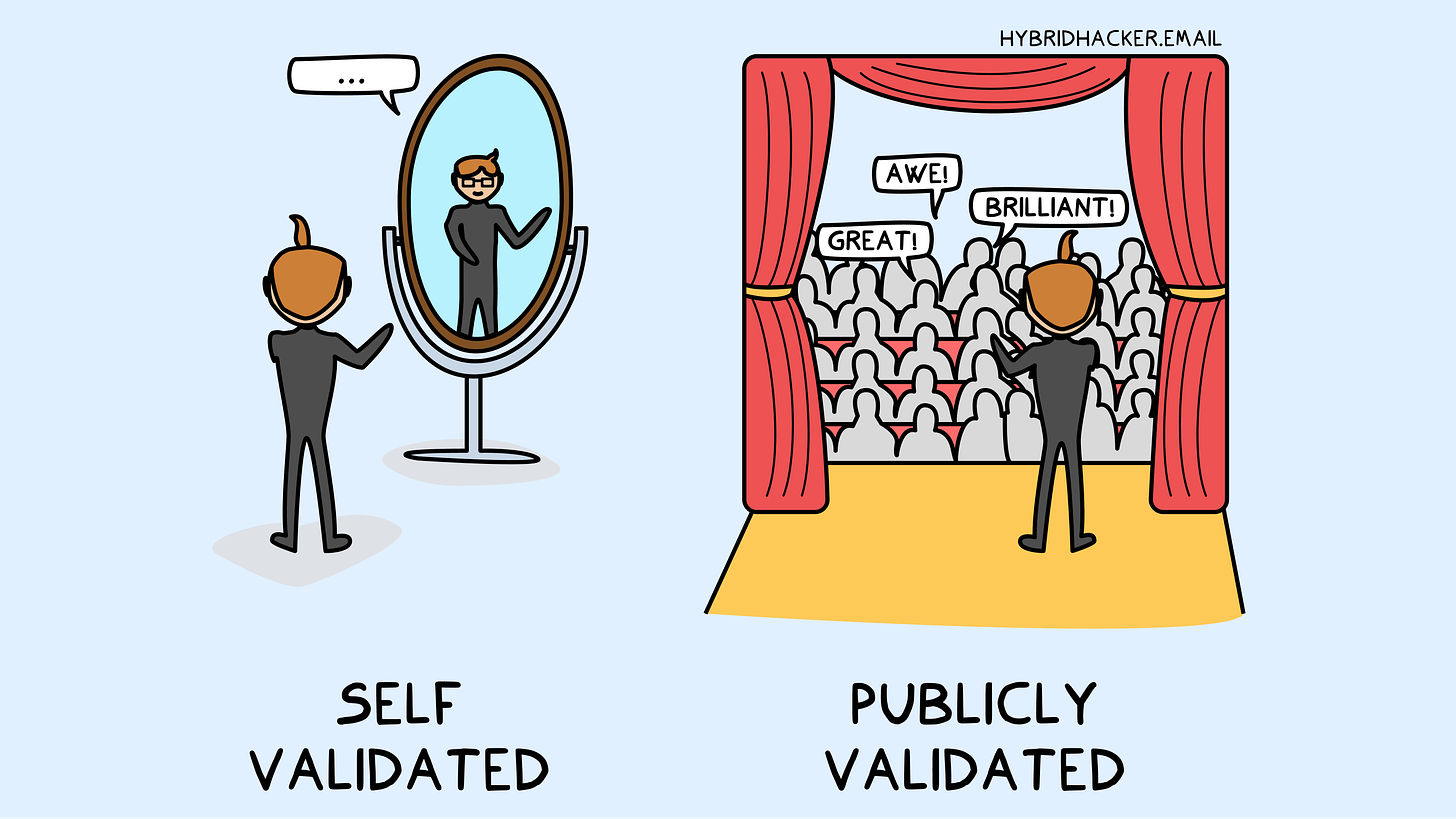

My 25-Year Engineering Career Retrospective
source link: https://hybridhacker.email/p/my-25-year-engineering-career-retrospective
Go to the source link to view the article. You can view the picture content, updated content and better typesetting reading experience. If the link is broken, please click the button below to view the snapshot at that time.
My 25-Year Engineering Career Retrospective
Reflecting on my engineering career and what I could have done better.
A few days ago, as often happens, I found myself lying awake in bed at 4 AM, and I started reflecting on my career and what I might have done differently if I could go back 25 years to when I was 18.
I woke up at 5:30 AM, took some notes, and over the following days, I decided to transform them into this essay.
I often engage in this kind of retrospective, not because I am unhappy with where I am today, but to identify what still needs to be improved in my personal life and career.
While I don’t regret much of what I’ve done, I thought others who are considering a career in engineering, or who are already pursuing one, might find this helpful or at least inspiring.
For your convenience, I have divided everything into categories, and here is what I will cover:
🔥 Mindset and Productivity
📚 Learning
👨💼 Career Planning
🗣️ Publice Exposure
⚖️ Work-Life Balance
🌐 Mentorship and Networking
Let’s begin!
🔥 Mindset and Productivity
Since I was younger, I have always been obsessed with time and how to save more of it.
This is probably why my body got used to sleeping just 4-6 hours per day, and today I find myself reflecting at 4 AM in the morning on what I could have done better 🙂
Despite that, I didn’t always make good use of the time I saved by not sleeping much, and although I believe I have become good at it today, I’m still always searching for ways to improve.
Procrastinate Less
Procrastination is common, especially in one's twenties. I believe this is connected to becoming an adult and feeling a bit confused about what to do.
What should I study?
What career path should I take?
Where should I live?
These are all hard questions to answer that leave you in a sort of limbo, and there’s a high chance you’ll start procrastinating.
That happens naturally to many people at a young age, and the important thing is not to get used to it.
I can’t count how much time I wasted procrastinating in my early career.
💡 WHAT WOULD I HAVE DONE DIFFERENTLY?
Understand how procrastination works; as they say, know your enemy. Today there’s a lot of literature you can easily access.
Use SMART goals to define what I wanted to achieve.
Use my calendar to time-box my day and make sure to spend at least half of it focused on my goals.
Avoid Competition
I was always a very competitive person, and especially at the beginning of my career in engineering, this gave me some headaches. I remember I was very frustrated when I saw people who were better than me at doing something related to my job.
While this pushed me to do better on one side, on the other hand, it also caused a lot of unnecessary stress and sometimes even friction with these people.
Today, I tend to avoid competition in favor of collaboration, and this is what I also teach my teams.
💡 WHAT WOULD I HAVE DONE DIFFERENTLY?
Focus more on taking others as examples and not as challenges.
Collaborate more with others instead of competing with them.
Always surround yourself with people who know more than you do.
Establish Journaling Habits
I've already written a lot about journaling, and it’s something today I couldn’t live without.
But early in my career, I was one of those who were just head-down into their job, confident of remembering everything and convinced that writing was useless.
While note-taking and journaling are habits that you can learn at an older age, there are two caveats:
As with every habit, it’s much harder to get used to it in adult age.
You lose years of history that could be useful for future reflections.
I understood the power of these habits just in recent years, and it took a lot of effort to establish them.
💡 WHAT WOULD I HAVE DONE DIFFERENTLY?
Learn more about note-taking and go beyond what I learned about this topic at school, where they rarely teach it to you the right way.
Start a journal and keep track of my thoughts, projects, everything.
Choose one tool and stick to it (I can’t count how many note-taking apps I've changed).
📚 Learning and Education
School and learning are interesting chapters of my life.
I’m curious by nature, and my curiosity pushed me to explore many different fields, not always related to the engineering career path.
While I don’t regret this trait of mine, which made me the generalist I’m today, if I were to go back, I’d probably try to channel my curiosity into a more focused trajectory.
Choose your Education
I always had a difficult relationship with school.
I never repeated a year in high school, but it was a struggle to finish, and then I started university mostly because my parents wanted me to. I changed universities four times, took about 20 exams in total, and continued to pay the annual university fees for several years before finally quitting.
All this while I was already working as a systems engineer for major Italian telecommunication companies.
Even though nothing I learned at university was directly useful for my career, I was afraid to quit due to pressure from my parents and the fact that my friends were almost all graduating.
This isn't to say that school or university isn't important, but especially today, when you can learn almost anything online, traditional education isn't the only option for pursuing a career in IT engineering.
💡 WHAT WOULD I HAVE DONE DIFFERENTLY?
Focus more on my own future rather than on what others think.
Choose a clear direction—whether that be pursuing education or committing to a full-time job. Although it’s possible to do both, focusing on one at a time is much simpler and often more effective.
Read More
I’m a very practical person who loves to learn through experimentation and failure. While there’s nothing inherently wrong with this approach, it was the reason I never developed a strong and consistent reading habit.
Until my 30s, I believed that reading about the experiences of others was unnecessary, and that the only true way to learn was through firsthand experience. Only in recent years have I begun to read and realized how wrong I was.
Reading is not only a great way to learn new things, but it also helps you to develop critical thinking skills.
💡 WHAT WOULD I HAVE DONE DIFFERENTLY?
Force myself to read books until I developed a habit.
Choose books that delve into the stories and thoughts of others, as well as behavioral books, rather than focusing only on technical ones.
👨💼 Career Path
I previously wrote about my career journey and how I landed in my current role at Namecheap. A
lthough my path over the last 10-15 years has been relatively consistent, I spent the first decade of my career with no clear idea of what to do.
This is probably one of the things I’d try to change if I could go back.
Define a Clear Path
While in the early years of everyone’s career, it’s probably normal not to have a clear idea of where you want to end up, having nothing at all made me waste a lot of time.
Before sitting down and defining my career path, which brought me to where I am today, I went through system engineering, security, product management, design, freelancing, and entrepreneurship.
While all these switches made me acquire a lot of different skills, if I could go back, I’d probably follow a more structured and deliberate approach.
💡 WHAT WOULD I HAVE DONE DIFFERENTLY?
Set clear short-term and long-term career goals.
Regularly evaluate my progress and adjust my career path as needed.
Seek advice from experienced professionals to help clarify my direction.
Code More
I had my first computer (a C64) when I was 13, but at least in the first part of my career, I often saw coding as something too hard for me, and this made me focus mostly on the system engineering side.
Only in recent years have I started coding more seriously and understood that it’s complementary to systems engineering, so worth learning, even if you don’t want to follow the developer’s path.
💡 WHAT WOULD I HAVE DONE DIFFERENTLY?
Dedicate specific time to coding to strengthen my skills.
Participate in coding challenges and open-source projects.
Collaborate with software developers to gain insights and practical knowledge.
🗣️ Public Exposure
If you want to advance in your career, leaving your comfort zone is mandatory, and this often means becoming publicly exposed.
It could be within your team, your company, or a wider community, but exposing your thoughts and ideas and being ready to be judged in public is an incredible booster.
Public Speaking
I’m an introvert, and I've always disliked being on stage.
Early in my career, I avoided public speaking whenever possible, and even today, while I have improved somewhat, it remains one of my biggest weaknesses. I believe this fear of the stage not only precluded some opportunities in my career but also prevented me from validating ideas and thoughts.
💡 WHAT WOULD I HAVE DONE DIFFERENTLY?
Join a local theater club to improve my public speaking skills or get some coaching.
Volunteer for speaking opportunities at work and conferences.
Practice regularly with peers to build confidence.
Writing in Public
I've lost count of how many blogs I've started in my life. I was great at setting up the website but would then leave it empty or with just the classic 'Hello World' article.
The biggest blocker was the fear of being judged—for my English, for my ideas, and so on—and the impact this could have on my career. I always had a good excuse.
It goes without saying that I was wrong and this newsletter that you are reading is the perfect example.
Writing in public is a great way to:
Solidify concepts that you learn and deliver your ideas.
Get feedback about what you think.
Step out of your comfort zone.
💡 WHAT WOULD I HAVE DONE DIFFERENTLY?
Start a blog or a newsletter and commit to maintaining it.
Write consistently about my career journey, sharing insights and learnings.
⚖️ Work-Life Balance
Achieving a healthy work-life balance is essential for long-term success and well-being.
Regrettably, in the middle of my career, I neglected this aspect of my life in pursuit of career advancement.
I often prioritized work at the expense of personal time.
Looking back, I would have probably adopted a more balanced approach, setting clear boundaries between work and personal life.
Don’t go All-In
In the competitive world of engineering, it's tempting to go all-in and dedicate every waking hour to work. However, I've learned the hard way that this approach is unsustainable in the long run and establishes a wrong habit that it’s hard to eradicate when you are older.
💡 WHAT WOULD I HAVE DONE DIFFERENTLY?
Enforce strict boundaries between work and personal life.
Learn to decline tasks that could put these boundaries at risk.
Establish Workout Habits
I always loved doing sports and I dedicated a lot of time to them during the early stages of my career, but then, after going all-in with my career, I stopped.
Today I find myself still struggling in building a consistent workout habit
💡 WHAT WOULD I HAVE DONE DIFFERENTLY?
Make physical activity something mandatory into my daily schedule.
Choose enjoyable and sustainable forms of exercise to ensure regularity.
Set and monitor fitness goals.
🌐 Mentorship and Networking
For the same reasons I often struggled with public exposure early in my career, networking and relying on others' mentorship were also challenges.
Even though I participated in many events and met numerous people in my field, I believe I could have done much better, especially in terms of maintaining these relationships.
Find Mentors, Rely on Coaches
As I have previously written, I enjoy learning through my own failures and consider it a valuable learning method. However, similar to my experiences with reading books, I now realized how beneficial it can be to have a mentor or rely on coaches, especially early in your career.
It's not about having someone to tell you what to do; it’s about gaining different perspectives and comparing your approaches with those used by other successful people. This not only saves time but also significantly boosts your personal growth.
💡 WHAT WOULD I HAVE DONE DIFFERENTLY?
Find a mentor who could have guided me through my journey.
Invest on coaching during complex situations or critical career transitions.
Network More
Building a broad network can open doors to countless opportunities and insights.
I often underestimated the power of networking in unlocking potential career paths and collaborations.
What I particularly lacked was consistency and growing relationships.
💡 WHAT WOULD I HAVE DONE DIFFERENTLY?
Attend more events and be less scared of approaching people.
Curate my relationships over time.
🏁 TL;DR
I believe that looking back at your career is always a useful exercise, as it was for me while writing this article.
The most important thing is to do this without feeling frustrated about what you could have done better, and instead focus on how you can improve things going forward.
To sum up what I would do better if I were to start my engineering career today:
🕒 Procrastination Management: understand procrastination better, use SMART goals, and time-box my days to focus on specific goals.
🤝 Avoid Competition: emphasize collaboration over competition, take examples from others constructively, and surround myself with more knowledgeable people.
📓 Journaling and Note-Taking: start journaling early in my career and learn effective note-taking, using one consistent tool.
🎓 Education Choices: focus more on my own goals instead of others’ expectations, and choose a clear educational or career path.
📚 Reading Habits: force myself to develop a reading habit early, focusing on diverse books.
🧭 Career Path Definition: set clear career goals, regularly evaluate progress, and seek guidance from experienced professionals.
💻 Coding Practice: allocate specific times for coding, participate in coding challenges, and collaborate with developers.
🗣️ Public Speaking: join a theater club or get coaching, volunteer for speaking opportunities, and practice regularly.
✍️ Writing Publicly: start and maintain a blog or newsletter in the early stages of my career, and write consistently about it.
⚖️ Work-Life Balance: set firm boundaries between work and personal life, and learn to decline tasks that put these boundaries at risk.
🏋️ Physical Fitness: integrate physical activity into my daily schedule, choose the right activities, and set fitness goals.
🌐 Mentorship and Networking: seek mentors and coaches early in my career, network actively, and nurture professional relationships consistently.
📢 Weekly Shoutouts
✌️ That’s all folks
That's all for today! As always, I would love to hear from my readers (and if you've made it this far, you're one of the bravest). Please don't hesitate to connect with me on LinkedIn or Twitter and send a message. I always respond to every one!
Recommend
About Joyk
Aggregate valuable and interesting links.
Joyk means Joy of geeK


